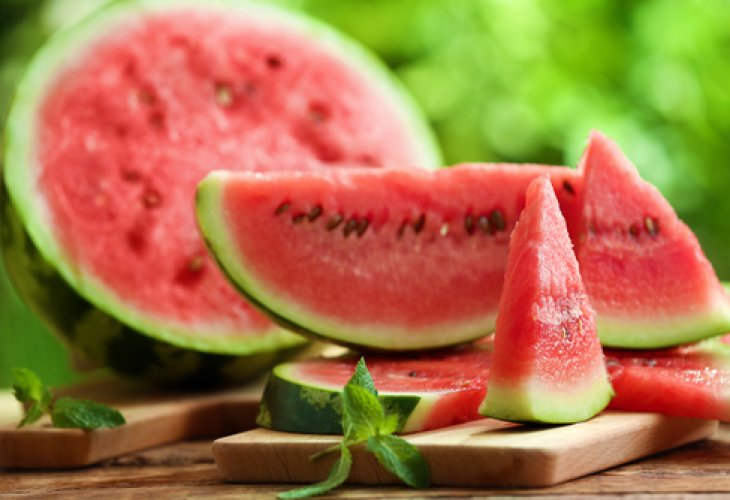Surprising Health Facts About Watermelon You Didn't Know
Full of sugar but also fiber: Do the benefits of watermelon outweigh its downsides? A nutritionist reveals some surprising facts about one of the most popular summer fruits.
 (Photo: shutterstock)
(Photo: shutterstock)Watermelon is loaded with fiber that's great for digestion, antioxidants that protect against diseases, but if you thought it's just water – you're mistaken. It also contains quite a few calories, and sometimes we wonder how much we can really eat.
Mariana Orbach, head of the Nutrition and Diet Unit at Clalit in the Dan District, explained to N12 that "most people are certain that watermelon is just water, but that's not true at all. It does contain a lot of water and also sugar, which contributes to its calorie content, but it has several health benefits that shouldn't be underestimated. Before we talk about them, it's important to put the calorie matter on the table - not many are aware, but a small slice of watermelon (200 grams) contains about 60 calories (similar to a slice of bread with cheese). A slice of this weight (without the rind) is equivalent to two teaspoons of sugar."
Orbach explains that summer fruits are particularly rich in fluids, minerals, and antioxidants, as well as other components that play an important role in hydrating and cooling the body. However, it's important to consume them in moderation. All fruits contribute to health and disease prevention, but it's important to diversify in types and colors to gain all their benefits.
"Watermelon's color is red, and like tomatoes, it's rich in lycopene - a pigment that, among other things, helps prevent various cancers and protect heart and blood vessel health," Orbach writes. "Additionally, studies have shown that lycopene helps protect the visual system, shield the body from air pollution, and not least – it helps protect against harmful sun radiation – a very important fact, especially during the hot summer period. As mentioned, watermelon is particularly rich in fluids and is known as a diuretic, making it excellent for those with high blood pressure, kidney stones, and even to ease constipation. Beyond all this, watermelon is rich in fiber. It also contains vitamin C (a 200-gram serving provides 30% of the daily recommended amount)."
In summary, watermelon is certainly a healthy and recommended fruit, but it's best not to consume more than two slices (400 grams). "Such a serving will be sufficient to provide you with all the nutritional benefits," she concludes.

